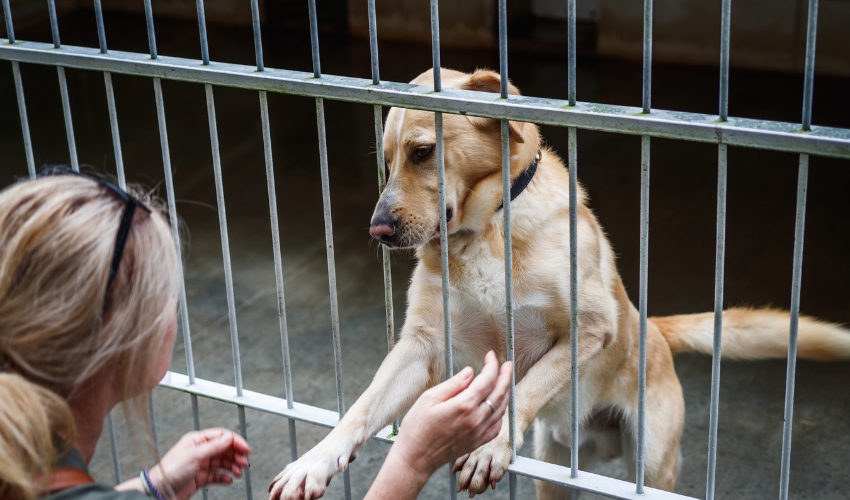As devoted pet owners, witnessing our dogs suffer from allergies can be both distressing and puzzling. Allergies in dogs are more common than one might think, and they can manifest in various ways, from skin irritations to gastrointestinal issues. In this comprehensive guide, we’ll explore the causes of allergies in dogs, recognize the signs, and discuss effective solutions to help your furry companion lead a comfortable and allergy-free life.
Understanding Dog Allergies
Allergies in dogs can be triggered by a range of factors, and it’s crucial for pet owners to understand the different types of allergies that can affect their furry friends.
- Environmental Allergies (Atopy): Environmental allergies, also known as atopy, are caused by hypersensitivity to environmental factors such as pollen, dust mites, mold spores, or certain grasses. Dogs may exhibit symptoms like itching, redness, and inflammation, commonly affecting their paws, ears, and belly.
- Food Allergies: Food allergies are adverse reactions to certain ingredients in a dog’s diet. Common allergens include proteins like chicken, beef, dairy, or grains. Symptoms can vary from gastrointestinal issues, such as vomiting and diarrhea, to skin problems like itching and hair loss.
- Flea Allergy Dermatitis (FAD): Flea saliva is a common allergen for dogs, and even a single flea bite can trigger an allergic reaction known as flea allergy dermatitis (FAD). Dogs with FAD may excessively scratch, bite, or chew their skin, leading to irritation and hair loss.
Signs of Allergies in Dog
- Recognizing the signs of allergies is the first step in addressing the issue. While symptoms can vary, common signs of allergies in dogs include:
- Excessive Scratching or Licking: Dogs with allergies often exhibit persistent scratching, licking, or chewing, particularly in areas like the paws, belly, and ears.
- Skin Redness and Inflammation: Allergic reactions can cause redness, inflammation, and sometimes the development of hot spots on a dog’s skin.
- Gastrointestinal Distress: Food allergies may manifest as gastrointestinal issues, including vomiting, diarrhea, or changes in bowel movements.
- Ear Infections: Dogs prone to environmental allergies may develop recurrent ear infections, leading to discomfort and head shaking.
- Watery Eyes and Runny Nose: Environmental allergies can mimic human allergy symptoms, causing watery eyes, a runny nose, and sneezing in dogs.
- Hair Loss: Chronic scratching and chewing can result in hair loss, leaving affected areas bare or irritated.
Addressing Allergies: Solutions and Strategies
Successfully managing allergies in dogs requires a multi-faceted approach that involves identifying and eliminating triggers, providing relief for symptoms, and maintaining a proactive care routine.

- Veterinary Examination: If you suspect your dog has allergies, the first step is to schedule a veterinary examination. A thorough evaluation will help determine the type of allergy affecting your dog and guide the development of an appropriate treatment plan. Your veterinarian may recommend tests such as skin or blood tests to identify specific allergens.
- Identifying and Eliminating Allergens: Once the allergens are identified, the next step is to minimize your dog’s exposure to them. For environmental allergies, this may involve simple measures such as regular cleaning, using air purifiers, and avoiding specific outdoor environments during peak allergen seasons. In cases of food allergies, your veterinarian may recommend a hypoallergenic diet, which involves eliminating common allergens from your dog’s food.
- Allergy-Friendly Diet: Switching to an allergy-friendly diet can be a key component of managing food allergies in dogs. Specialized hypoallergenic or limited-ingredient diets can help identify and eliminate problematic ingredients. Consult with your veterinarian to determine the most suitable diet for your dog’s specific needs.
- Medications and Supplements: Veterinarians may prescribe medications to alleviate allergy symptoms. Antihistamines, steroids, or immune-modulating drugs can provide relief from itching and inflammation. Additionally, omega-3 fatty acid supplements, known for their anti-inflammatory properties, may be recommended to support skin health.
- Flea Prevention: For dogs with flea allergies, implementing a robust flea prevention strategy is essential. Regular use of flea preventatives, such as topical treatments, oral medications, or collars, can help break the flea life cycle and prevent allergic reactions.
- Topical Treatments: Topical treatments, such as medicated shampoos or sprays, can provide relief for dogs with skin allergies. These products can help soothe irritated skin, reduce inflammation, and prevent secondary infections.
- Allergy Testing and Immunotherapy: Allergy testing, including intradermal skin testing or blood tests, can help identify specific allergens triggering your dog’s reactions. In some cases, veterinarians may recommend immunotherapy, where small amounts of allergens are gradually introduced to desensitize the dog’s immune system over time.
- Regular Grooming: Regular grooming is crucial for dogs with allergies, especially those prone to skin issues. Bathing your dog with a hypoallergenic shampoo can help remove allergens from their coat and soothe irritated skin. Pay particular attention to paws and ears, as these areas are often affected by allergies.
- Environmental Management: Make adjustments to your dog’s environment to minimize exposure to allergens. This may include using allergen-resistant bedding, vacuuming and cleaning your home regularly, and providing a clean and dust-free living space.
- Consistent Follow-Up: Allergies can be an ongoing challenge, and consistent follow-up with your veterinarian is crucial. Regular check-ups allow for the monitoring of your dog’s condition, adjustment of treatment plans if necessary, and addressing any emerging concerns.

Conclusion:
Dealing with allergies in dogs requires a proactive and comprehensive approach. By identifying triggers, implementing preventive measures, and working closely with your veterinarian, you can provide relief for your dog’s allergy symptoms and enhance their overall well-being. Remember that every dog is unique, and a personalized care plan tailored to your dog’s specific needs is essential for effective allergy management. With dedication, patience, and the right strategies, you can help your furry friend lead a happy, comfortable, and allergy-free life.












